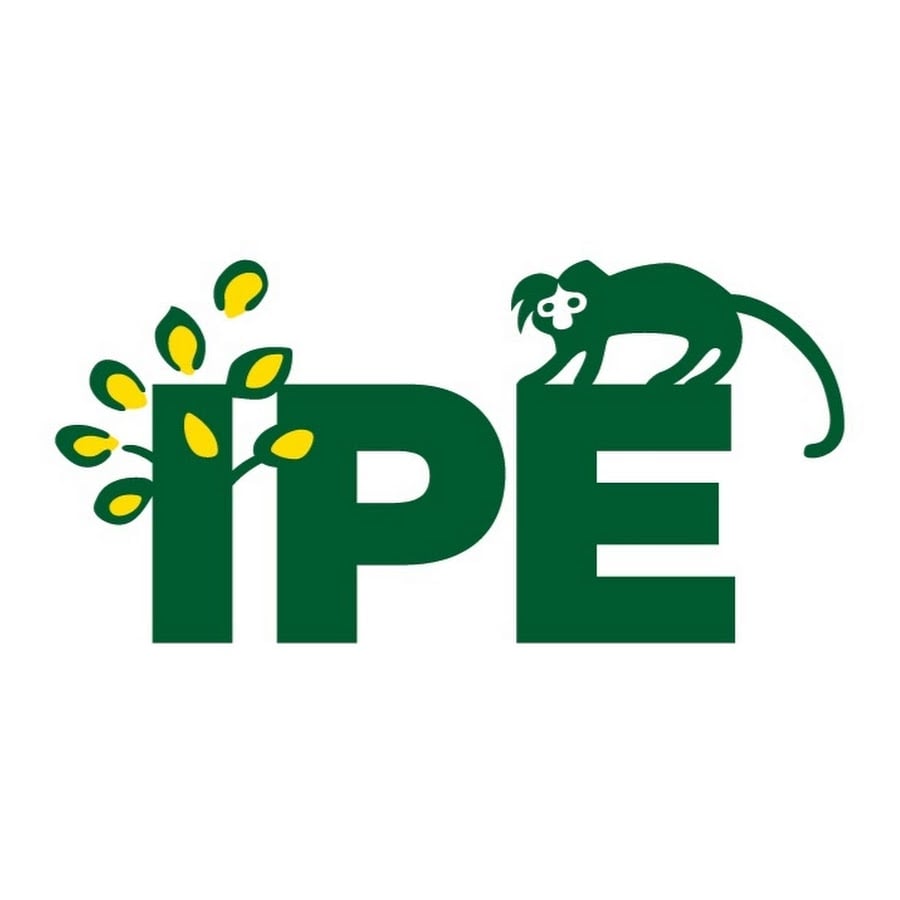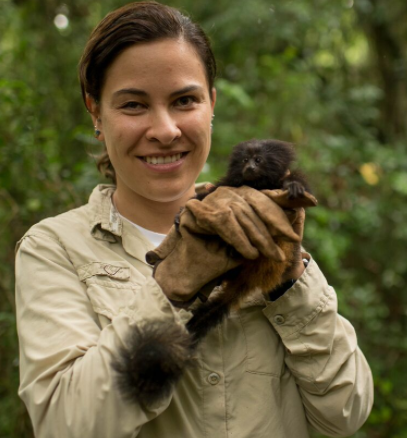::cck::583::/cck::
::introtext::
Gabriela Cabral Rezende, coordinator of the Black Lion Tamarin Conservation Program, from IPÊ (Institute for Ecological Research), is part of a shortlist of top conservationists that compete for the Whitley Awards 2020, considered the Green Oscar.
Each year, the Whitley Awards recognize the work of six conservationists with projects in Africa, Asia, and Latin America. For this year, 112 researchers competed. The list of six winners will come out in April.
Gabriela competes for conservation work with the black lion tamarin, the animal that is the symbol of São Paulo State. For nine years, she has continued the project that began 35 years ago, in Pontal do Paranapanema, with primatologist Claudio Padua, which is the first Brazilian to win the Whitley Award in 1999. The project grew, using tamarin protection strategies that have already produced results, such as the reforested corridor that connects the Protected Areas of the region, guaranteeing more area available for the circulation of the species. In addition, black lion tamarin conservation is supported by environmental education and sustainable income generation actions. As examples, agroecology and community nurseries both help to strengthen the population’s relationship with the local fauna.
Currently, the researcher is engaged in studies for the management of the species and developing innovative experiments that can contribute to the collection of more accurate data on tamarins, such as the installation of nest boxes in areas of young forests where there are no trees holes to be used by the tamarin yet. Under the leadership of Gabriela, the project also brought the first monitoring collars with GPS to be used on small animals in Brazil.
“Me and the entire IPÊ team are very happy with the nomination. This is an integrated work, where everyone’s action is fundamental, not only for research itself, but for environmental education, landscape restoration, and community involvement. It is this integration and collaboration that makes conservation work happen. The scientific research on the black lion tamarin can gain even more if we win this award, so it means a lot to us to be in this shortlist”, she comments.
::/introtext::
::fulltext::::/fulltext::
::cck::583::/cck::


